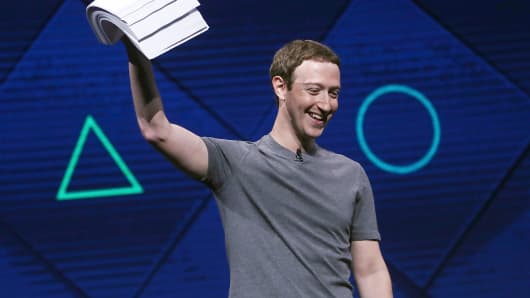Hi Facebook, it's me (but you know that already).
You've been in the news a lot lately. For all the wrong reasons. It got so bad that your creator, Mark Zuckerberg, got dragged to the nation's capital this week to answer hours and hours of painful questioning from dozens of lawmakers.
Many of your users, including me, are pretty creeped out by what we've learned. But amid the madness, a novel idea has surfaced. What if you let people pay — say $7 a month — for an ad-free Facebook? This isn't the most popular proposal. In fact, most people interviewed by The Washington Post said they wouldn't pay.
I'm much more generous. I'll pay you the full $269.08, which is the amount of revenue per user that Facebook made from 2010 through 2017 in the U.S. and Canada. That will cover the pictures from my high school graduation and my first semester in college as well as the memories of my first year in New York. It doesn't include my first year on Facebook (2009), my use of Instagram and WhatsApp or anything I've done so far this year.
In return, I've got a tall ask. Even though I can download my profile's contents for free, I'd like assurance that the data hasn't been scraped and used anywhere else. If it has been, I'd like you to retrieve it. If you give me a safer, more secure experience and truly give me complete control of my data, I'll even pay you a little extra. Let's round it up to $300 even.



